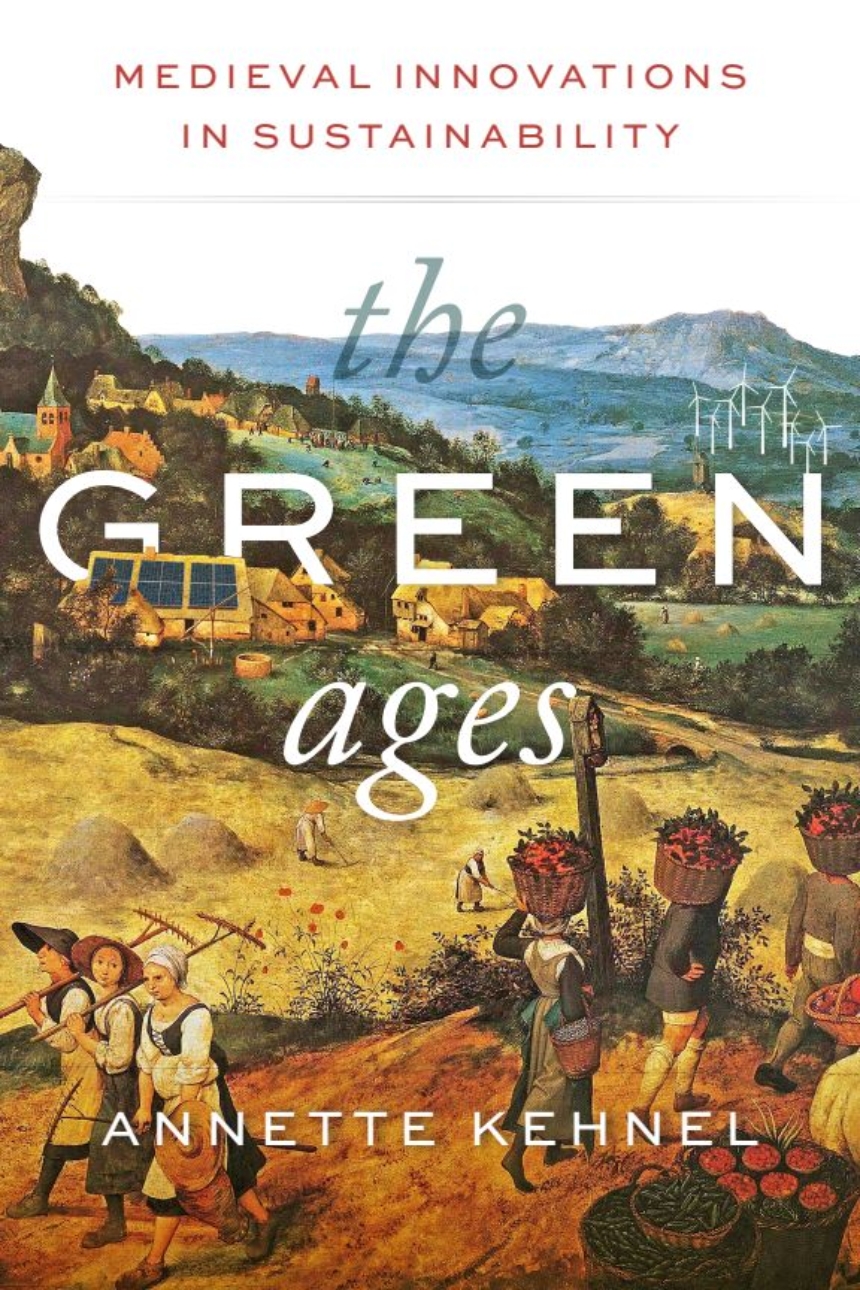A fascinating blend of history and ecological economics that uncovers the medieval precedents for modern concepts of sustainable living.
In The Green Ages, historian Annette Kehnel explores sustainability initiatives from the Middle Ages, highlighting communities that operated a barter trade system on the Monte Subiaco in Italy, sustainable fishing at Lake Constance, common lands in the United Kingdom, transient grazing among Alpine shepherds in the south of France, and bridges built by crowdfunding in Avignon. Kehnel takes these medieval examples and applies their practical lessons to the modern world to prove that we can live sustainably—we’ve done it before!
From the garden economy in the mythical-sounding City of Ladies to early microcredit banks, Kehnel uncovers a world at odds with our understanding of the typical medieval existence. Premodern history is full of inspiring examples and concepts ripe for rediscovery, and we urgently need them as today’s challenges—finite resources, the twilight of consumerism, and growing inequality—threaten what we have come to think of as a modern way of living sustainably. This is a stimulating and revelatory look at a past that has the power to change our future.
In The Green Ages, historian Annette Kehnel explores sustainability initiatives from the Middle Ages, highlighting communities that operated a barter trade system on the Monte Subiaco in Italy, sustainable fishing at Lake Constance, common lands in the United Kingdom, transient grazing among Alpine shepherds in the south of France, and bridges built by crowdfunding in Avignon. Kehnel takes these medieval examples and applies their practical lessons to the modern world to prove that we can live sustainably—we’ve done it before!
From the garden economy in the mythical-sounding City of Ladies to early microcredit banks, Kehnel uncovers a world at odds with our understanding of the typical medieval existence. Premodern history is full of inspiring examples and concepts ripe for rediscovery, and we urgently need them as today’s challenges—finite resources, the twilight of consumerism, and growing inequality—threaten what we have come to think of as a modern way of living sustainably. This is a stimulating and revelatory look at a past that has the power to change our future.
Reviews
Table of Contents
Introduction
1. Was Everyone Poor Before We Invented Capitalism?
1.1. The History of Progress: Modern Grand Narratives and their Pitfalls
1.2. Did Our Forebears Toil from Dawn till Dusk?
1.3. Europe in the High to Late Middle Ages: Some Dates and Figures
2. Sharing
2.1. Sharing Brings Riches: Convent Economy
2.2. Commons, and the Art of Internalising the External
2.3. Beguinages: Female Communities and Urban Gardening
3. Recycling
3.1. Maintenance Jobs and Second-Hand Markets
3.2. Paper: A Recycled Product Writes World History
3.3. Bricolage and Assemblage: Antiquity Repurposed for the Middle Ages
4. Microfinance
4.1. Microfinance Institutions in Italian Cities: The Monti di Pietà
4.2. Peer-to-Peer Lending in Medieval Towns
4.3. Agriculture on the Edge of Town: Medieval Rent-a-Cows
5. Philanthropy
5.1. Funding for Community Projects: Pont Saint-Bénézet in Avignon
5.2. Cultural and Social Sustainability: No Indulgences, No Michelangelo
5.3. Social Housing in Augsburg: The Fuggerei
6. Minimalism
6.1. Wealth is the Vomit of Fortune: Diogenes of Sinope
6.2. Money is Dung: St Francis of Assisi
6.3. Minimalism and Economic Theory: Pierre de Jean Olivi
7. What the Past Can Teach Us About the Future
7.1. What Would Our Ancestors Advise?
7.2. How to Escape the Prison of Inevitability
7.3. History: A Cure for Chronophobia
1. Was Everyone Poor Before We Invented Capitalism?
1.1. The History of Progress: Modern Grand Narratives and their Pitfalls
1.2. Did Our Forebears Toil from Dawn till Dusk?
1.3. Europe in the High to Late Middle Ages: Some Dates and Figures
2. Sharing
2.1. Sharing Brings Riches: Convent Economy
2.2. Commons, and the Art of Internalising the External
2.3. Beguinages: Female Communities and Urban Gardening
3. Recycling
3.1. Maintenance Jobs and Second-Hand Markets
3.2. Paper: A Recycled Product Writes World History
3.3. Bricolage and Assemblage: Antiquity Repurposed for the Middle Ages
4. Microfinance
4.1. Microfinance Institutions in Italian Cities: The Monti di Pietà
4.2. Peer-to-Peer Lending in Medieval Towns
4.3. Agriculture on the Edge of Town: Medieval Rent-a-Cows
5. Philanthropy
5.1. Funding for Community Projects: Pont Saint-Bénézet in Avignon
5.2. Cultural and Social Sustainability: No Indulgences, No Michelangelo
5.3. Social Housing in Augsburg: The Fuggerei
6. Minimalism
6.1. Wealth is the Vomit of Fortune: Diogenes of Sinope
6.2. Money is Dung: St Francis of Assisi
6.3. Minimalism and Economic Theory: Pierre de Jean Olivi
7. What the Past Can Teach Us About the Future
7.1. What Would Our Ancestors Advise?
7.2. How to Escape the Prison of Inevitability
7.3. History: A Cure for Chronophobia

